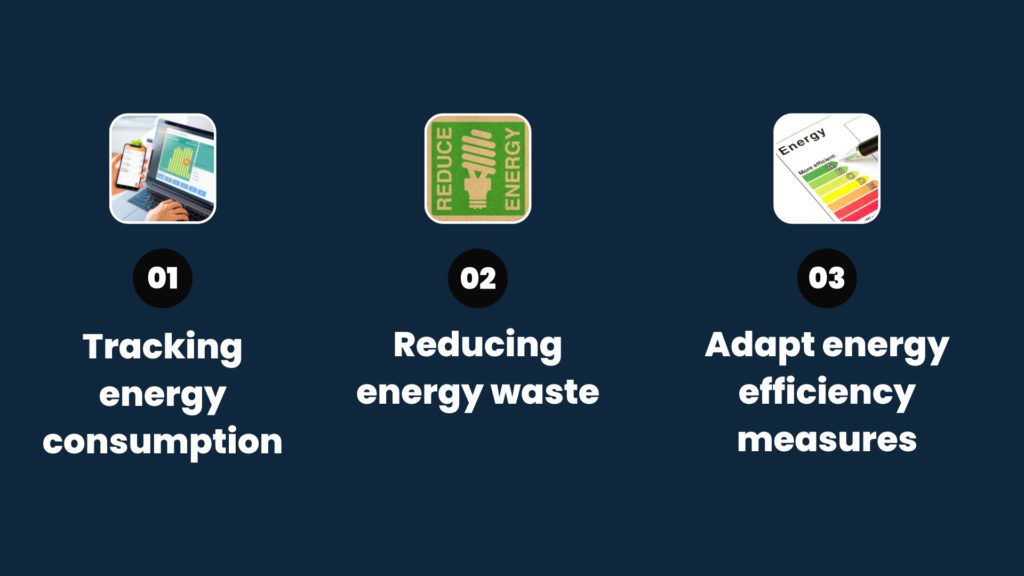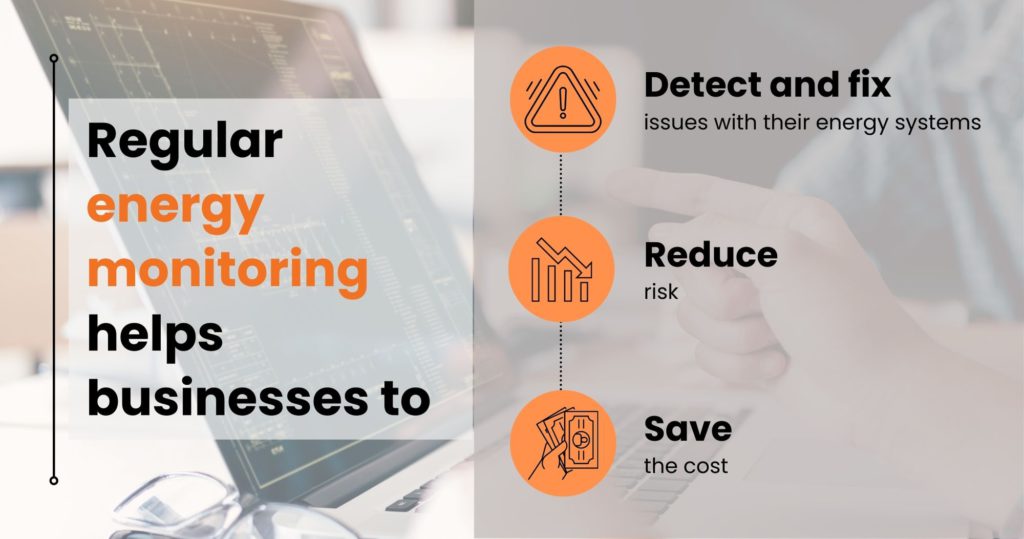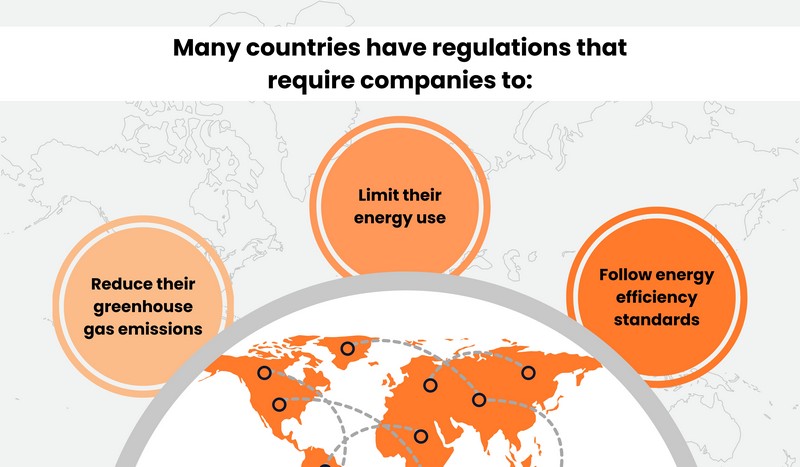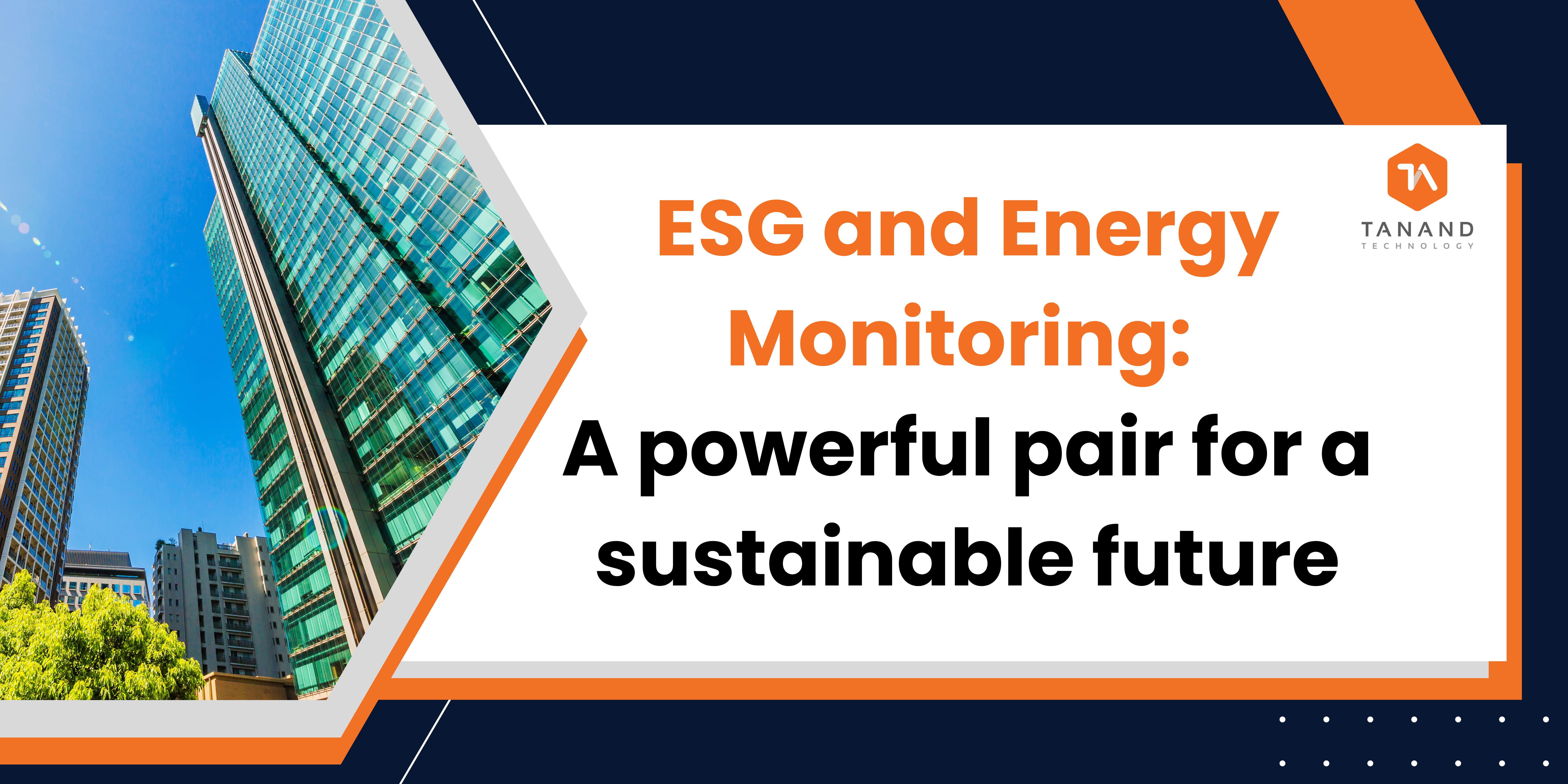MARCH 22, 2023 | ENERGY MANAGEMENT AND MONITORING, ENERGY EFFICIENCY, ESG, SUSTAINABILITY
Energy management and monitoring refer to the processes and systems used to optimize energy usage in buildings, industries, and more. Real-time monitoring and analysis of energy data can help identify areas of high energy use and potential energy savings opportunities. So, energy management and monitoring are critical components of ESG (Environmental, Social, and Governance) initiatives.
In recent years, companies have become increasingly aware of the importance of sustainability and are implementing measures to reduce their environmental impact. Investors are increasingly considering ESG factors when making investment decisions, as they recognize the importance of sustainable and responsible business practices. Companies that implement effective energy management and monitoring strategies are more likely to be viewed positively by investors.
Thus, energy management and monitoring play a key role by helping companies:
- Improve their energy efficiency
- Reduce their carbon footprint
- Comply with environmental law
Beyond Sustainability: The Business Benefits of Energy Monitoring
1. Cost savings
Energy management and monitoring can lead to significant cost savings for businesses, as reducing energy consumption can lower utility bills and operational expenses. By optimizing energy use, companies can improve their bottom line while also reducing their environmental impact.
Energy management and monitoring includes activities such as:

- Tracking energy consumption – identify areas where energy is being wasted, such as equipment that is left on when not in use or inefficient processes
- Reducing energy waste – results in lower emissions
- Adapting energy efficiency measures – upgrading to more energy-efficient equipment or implementing renewable energy solutions
The other ways of conducting energy management is by building automation systems to control lighting, HVAC systems and so on. Investing in energy-efficient technologies can reduce energy consumption and lower operational costs in the long run.
By monitoring energy usage, it is possible to project future energy expenses. This can help businesses better plan and budget for energy-related expenses, reducing the likelihood of unexpected expenses and helping to ensure more stable financial performance. Hence, optimizing energy usage can help to save money on energy costs and avoid paying unnecessary fees.
2. Achieve energy efficiency goals
Monitoring energy usage is equally important in achieving energy efficiency goals. Energy efficiency goals typically focus on reducing energy consumption while maintaining productivity and comfort levels. Identifying and collecting data from the energy consumption is crucial to provide vital insight. This information can be used to make adjustments and take corrective action as needed to ensure that the organization is on track to achieve its goals. For example, the information can be used as:
- Energy benchmarking – that can help managers to compare their energy performance with others and thus make improvement
- Set realistic energy usage goals based on historical & real-time data
- Energy efficiency upgrades – identify opportunities to upgrade energy-efficient appliances
Moreover, company can do regular energy monitoring to evaluate the effectiveness of their energy efficiency strategies and thus it helps businesses to:
- Detect and fix issues with their energy systems- identify patterns and any abnormal spikes or dips in usage
- Reduce risk associated with energy usage such as electrical fires
- Save the cost– improve energy utilization which leads to cost-effectiveness

It is challenging to maintain efficiency certifications and targeted goals without ongoing analyses because it misses identification of energy consumption which will lead to energy wastage. Hence, utilizing new intelligence from these deployments can lead to certifying facilities to efficiency standards.
3. Improve ESG reporting
Energy management and monitoring also play a crucial role in ESG reporting. ESG reporting is a process where companies disclose their environmental, social, and governance performance to stakeholders. ESG reporting has become increasingly important, as stakeholders place greater emphasis on sustainability and social responsibility.
Companies that effectively manage their ESG performance can attract socially responsible investors, and enhance their reputation and long-term financial performance. So, meeting ESG metrics can build trust and credibility with stakeholders and contribute to their long-term success.
Energy monitoring also can help organizations demonstrate their progress towards energy efficiency goals and other ESG targets. This includes information such as:
- Energy usage
- Greenhouse gas emissions
- Other sustainability metrics
4. Comply with environmental regulations
Energy use has a significant impact on the environment including air pollution, water pollution, climate change, and other environmental issues. The importance of energy regulations has grown as the global community has become more aware of the urgent need to address climate change and other environmental issues.
To protect human health, address these impacts and promote more sustainable and equitable energy systems, governments around the world have implemented a range of regulations and policies related to energy use and production. So, energy management and monitoring are critical for adhering to rules. Also, it can help organizations comply with a wide range of environmental regulations and better conserve the resources.

By monitoring energy usage, it can benefit both the company and society because it helps organizations identify and manage environmental risks related to their energy use and associated emissions. Therefore, the companies that with good management of energy usage can ensure they meet these requirements and avoid penalties or fines.
Conclusion
To sum up, effective energy management and monitoring enabled the companies to reduce utility cost, minimize the environmental impact, walk the talk of social responsibility and sustainability, and abide by environmental laws. Investing in energy management and monitoring can be an excellent long-term strategy for businesses looking to enhance their environmental and social impact.
Check out our first ESG project with BVH’s GBI platinum certified building >> https://lnkd.in/gD7GT6Px

